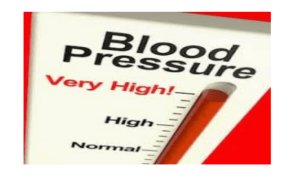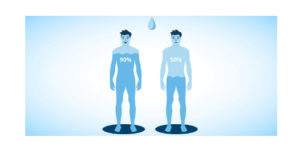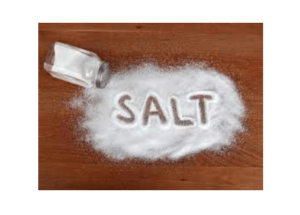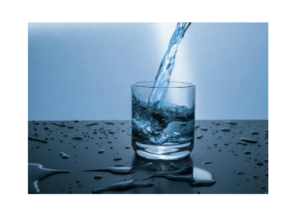Share this blog post with your friends
Hypertension also known as High Blood Pressure (HBP) is a disease that can’t be cured, it requires lifelong treatment. It is having a blood pressure above the normal pressure, 140 mmHg and 90 mmHg.
It has no noticeable symptoms and as such, many people are unaware of it until it causes a serious health problem. When it becomes too severe, you will notice symptoms like Headache, Dizziness, Anxiety, Increase in heartbeat, nosebleeds, vomiting, difficulty breathing, chest pain e.t.c
Understanding its causes, and effects on the body, diagnosis, and management is very important. And we’ll be looking at that going forward in this article.
Source: Emergency Medicine Cases
CAUSES OF HYPERTENSION (HIGH BLOOD PRESSURE)
1. Obesity:
Obesity, also known as fat increases the risk of getting high blood pressure because an increase in body weight requires more oxygen which increases blood volume to be supplied to excess fat cells, and that can eventually lead to an increase in high blood pressure.
2. Dehydration:
Not taking enough water can lead to high blood pressure. It makes blood vessels constrict and makes the blood thick, making it hard for the free flow of blood. It’s advisable to always stay hydrated.

Source: Happiest Health
3. Stress:
Stress can also be a cause of high blood pressure because it reduces the body’s ability to regulate blood pressure. So, when the body is stressed, it leads to an increase in blood pressure. Stress can be a result of various factors such as work, lack of sleep, personal issues e.t.c
4. Genetic:
Genetics is the study of how certain characteristics are passed down from parents to offspring. It could be height, skin color, eye colour, and even diseases.
So, High blood pressure can also be passed down from parents to offspring. If one’s parents have high blood pressure, there are possibilities of others in the family having high blood pressure too.
5. Age factor:
As one gets older, the risk of getting high blood pressure becomes higher. Age factor comes with reduced kidney function which helps in regulating blood pressure. The body changes which makes it hard for blood vessels to regulate the blood, leading to high blood pressure.
6. Salt:
Salt helps to maintain the fluid balance of the body but too much intake of salt can lead to excess fluid in the body which increases the blood volume and increases blood pressure. The high intake of salt can also damage or narrow the blood vessels which makes it difficult for blood to flow, which in turn results in high blood pressure.

Source: Times of India
EFFECTS OF HYPERTENSION (HBP) ON THE BODY.
Hypertension affects the body when it becomes too severe and if it isn’t treated on time. The effect it will have on the body includes:
- Kidney damage.
- Stroke.
- Heart disease.
- Brain damage.
- Eye problems.
HOW TO MANAGE HIGH BLOOD PRESSURE (HBP).
Having high blood pressure requires lifelong treatment since it can’t be cured but the good thing is that it can be managed.
Below are Ten (10) ways you can manage High Blood Pressure (HBP):
1. Regular exercise:
Exercising regularly is an important way to reduce high blood pressure. It helps to strengthen the heart to help it pump blood more easily. Exercise also relieves stress, enhances good sleep, and helps in losing weight.
2. Massage:
Massage is therapeutic. It is a complementary treatment for managing high blood pressure. It improves relaxation which helps to lower blood pressure. It enhances blood circulation throughout the body and the enhancement in blood circulation can help in lowering high blood pressure.

Source: Discover Massage Australia
3. Healthy Diet:
Having a proper meal can help reduce high blood pressure. Avoid processed food and food rich in sodium, limit the intake of sugar, limit foods high in fats, and eat proteinous food. Also eating food rich in vitamins can help regulate high blood pressure.
4. Reduce the intake of sugar:
Reducing sugar intake can help regulate high blood pressure because high consumption of sugar can lead to weight gain, which is a cause of high blood pressure. However, limiting the intake of sugar helps to lower high blood pressure.
5. Limit the intake of alcohol:
Excessive consumption of Alcohol can lead to an increase in blood pressure. It can also lead to poor sleep which can increase blood pressure. It can also cause damage to the blood vessels. So, limiting the intake of Alcohol can help in regulating blood pressure.
6. Drink water:
Staying hydrated helps in regulating blood pressure. It also helps in regulating the body temperature. So it is advisable to always drink water. Water has so many benefits, some of which include healthy skin, helping the brain to function well and also it reduces the risk of kidney diseases.

Source: pexels
7. Prioritize rest:
Rest helps to reduce stress, it ensures that you get adequate sleep which helps regulate high blood pressure. It enhances relaxation and overall well-being.
8. Watch your weight:
Obesity increases the risk of getting high blood pressure so it is advisable to adopt a healthy lifestyle and eat good meals. Losing weight helps the heart to function well and reduces the risk of getting high blood pressure.
9. Regular medical checkups:
Regular medical check-ups are very necessary as hypertension (High Blood Pressure ) has no noticeable symptoms. It is necessary for early detection and management of high blood pressure.
Book a medical check-up from time to time to know your blood level. Always consult a healthcare specialist before beginning any treatment.
10) Take your medical prescription:
Medical prescription also plays a very important role in regulating blood pressure. It is very necessary to take medical prescriptions seriously. Don’t take it for granted and do not take whatever has not been prescribed to you. It is also advisable to keep in touch with your healthcare specialist.

Source: Synlab
In conclusion:
Hypertension (High blood pressure) is a worldwide health issue with health complications such as stroke, kidney damage, heart disease, etc. So, It is advisable to adopt a healthy lifestyle. A Lifestyle that doesn’t pose any risk to you.
Prioritize rest, have a healthy diet, exercise regularly, and always stay hydrated. Also, Medical prescriptions and regular checkups play an important role in regulating blood pressure.

